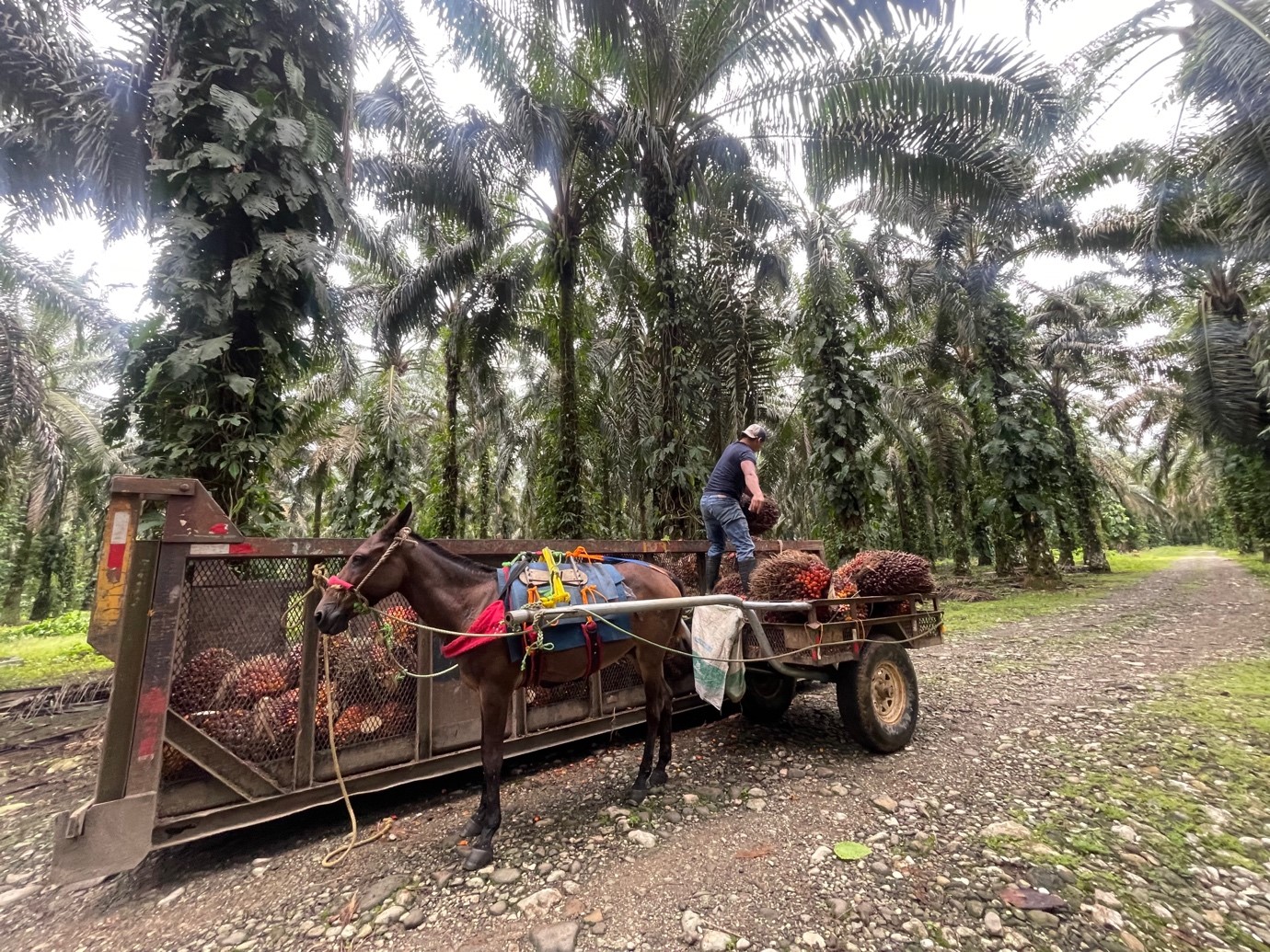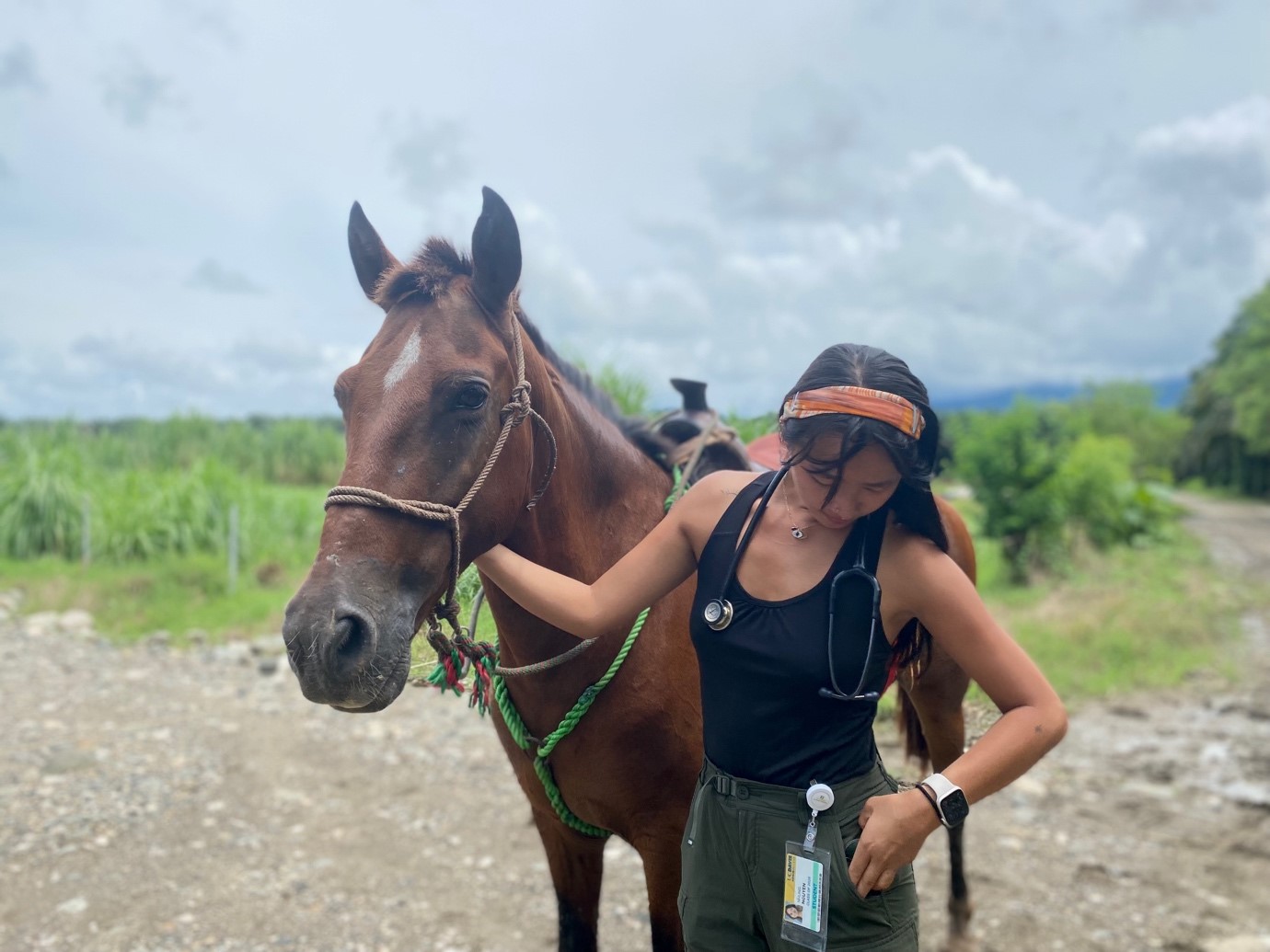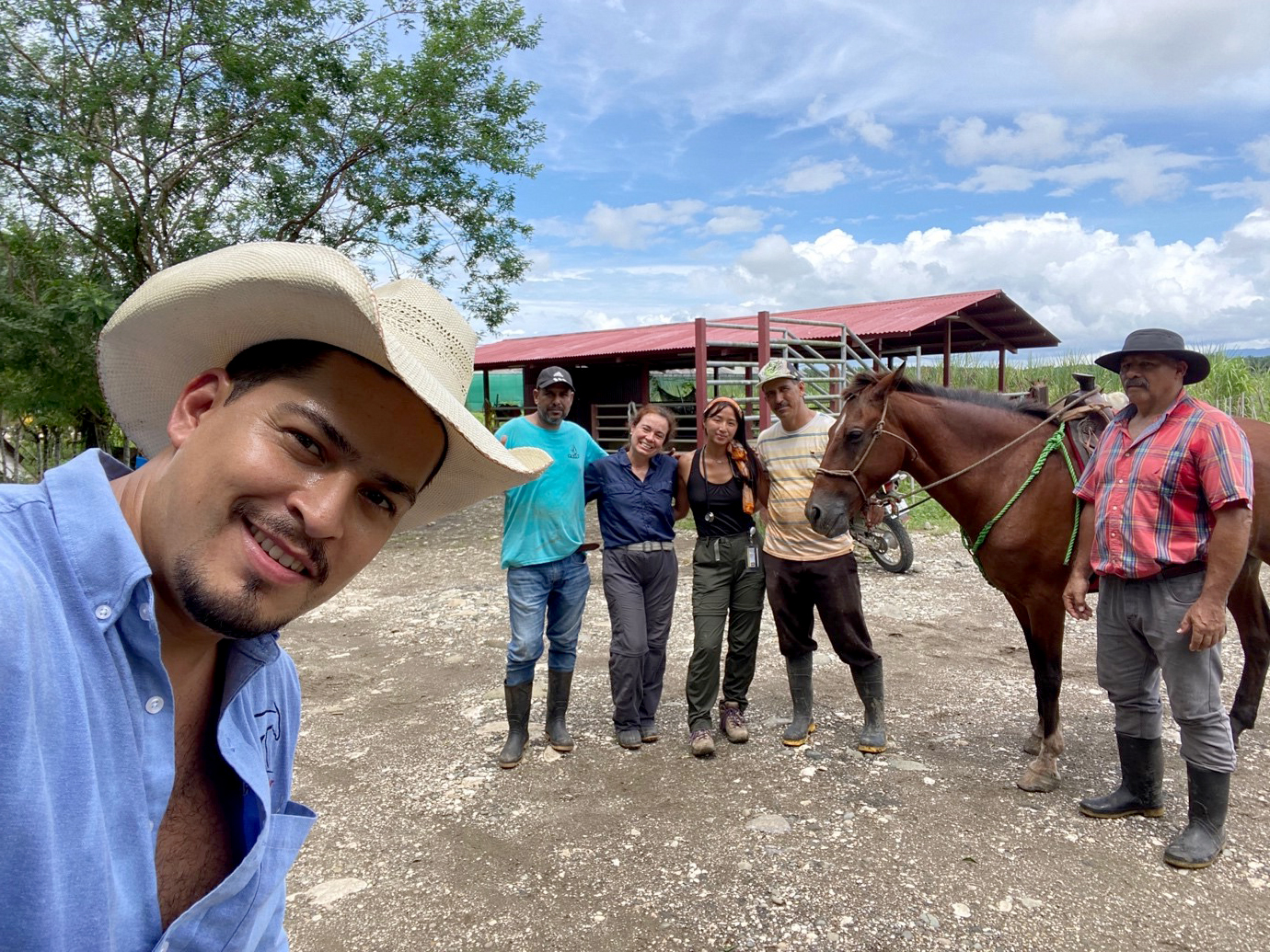Nhung Nguyen
Nestled in the heart of Central America, Costa Rica is a land filled with immense biodiversity and rich landscapes. In certain regions, palm oil plantations have taken precedence with fruit cultivation, and require the use of working equids to bear the fruits of their labor. Working alongside my veterinary advisors, we identified a target population of mules, horses, and ox that required health and welfare attention. Here, working equids are used to haul cart loads of fruit, yet lack standardized protocols to ensure proper working conditions are met. This summer I traveled to a prominent palm oil plantation with an initiative to address these gaps by evaluating current management practices, performing health wellness exams, developing a welfare assessment tool, and making recommendations for improved equid welfare.
In the months leading up to departure, I met with my veterinary advisors to synthesize literature reviews and develop a well-rounded understanding of our work. We developed a standardized welfare assessment tool to evaluate the working conditions and health of equids and finalized a proposal. After months of preparations, it was time to put our project into fruition.

The first phase of the project took on an investigative role to understand current welfare management practices. I began by conducting unbiased observations of the daily work routine and interviewed workers to understand the structure of roles within the plantation. I learned about the hard work of the people and mules that begin from dawn to dusk. Next, I performed wellness exams on working animals to assess current health conditions, examined diet and forage, shelter, harness and cart equipment, and collected blood samples to run PCV, total solids and test for parasites. Next, we collaborated with a mule behavior specialist for an educational initiative aimed at teaching empathy from the perspective of a working equid, proper harnessing and equipment usage, and handling techniques. It was heartwarming to see the presentation taken to heart, and immediate steps for improvements being made soon after.

The observations from our project uncovered the immense complexity of the issue, intertwining fundamental roots of human, animal, and environmental concerns. I understood how to be mindful of my presence as a visitor, to communicate our intentions to work alongside and empower the local community, as that is where true change is sustainable. I understand that in such a short time span immediate change cannot be expected, rather these are the piloting steps of a long-term collaborative effort.
I would like to extend my sincerest gratitude to Dr. Crook for believing in my potential to contribute positively to the veterinary profession, and for connecting me to my supportive advisors, Dr. Costa and Dr. Davis. A sincere thank you to Dr. Urbiola from RVETS Mexico for his invaluable perspective and contributions, Costa Rica Equine Welfare (CREW) and Palma Tica for their immense hard work, and to UC Davis Global Programs and our generous donors for this transformative scholarship that offers monumental growth beyond the classroom doors.

